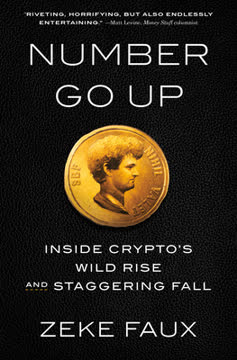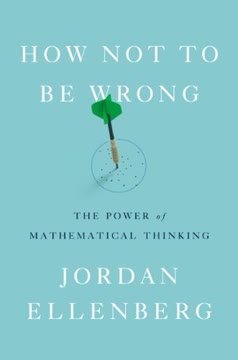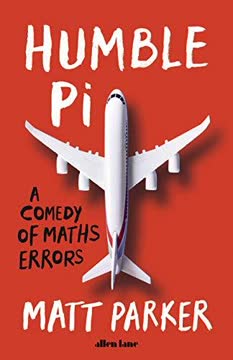Key Takeaways
1. Our taste preferences are often unconscious and influenced by external factors
You will know what you like or do not like before you know why.
Rapid affective judgments. Our brains make split-second decisions about likes and dislikes, often before we're consciously aware of them. This quick filtering mechanism helps us navigate a complex world efficiently, but it can also lead us to miss out on potentially enjoyable experiences.
External influences. Our preferences are shaped by numerous factors beyond our control, including:
- Childhood experiences and cultural background
- Current context and environment
- Expectations and prior knowledge
- Physical state (hunger, mood, etc.)
These influences can create biases in our taste perceptions, leading us to enjoy or dislike things for reasons we may not fully understand or appreciate.
2. Language and memory play crucial roles in shaping our likes and dislikes
Talk about why you like something.
Verbalization enhances memory. When we articulate why we like something, we create stronger neural connections associated with that experience. This process helps cement our preferences and makes it more likely we'll remember and seek out similar experiences in the future.
Categorization aids liking. Our brains are primed to categorize experiences, and we tend to like things more when we can place them into familiar categories. This is why:
- Wine enthusiasts often describe flavors using specific terminology
- Music fans group artists into genres
- Food critics use precise language to describe dishes
By developing a more nuanced vocabulary for our experiences, we can enhance our appreciation and enjoyment of various tastes and sensations.
3. Social influence significantly impacts our preferences and consumption habits
We like what we expect to like; we like what we remember.
Peer pressure and conformity. Humans are inherently social creatures, and our tastes are often shaped by those around us. This manifests in several ways:
- Following trends and popular opinion
- Seeking approval from peers
- Adopting preferences of respected individuals or groups
Anticipation and memory. Our expectations play a crucial role in shaping our experiences. We tend to enjoy things more when we anticipate liking them, and our memories of past experiences can color our current perceptions.
These social and psychological factors can lead to self-fulfilling prophecies in taste, where our preconceptions become reality through the power of suggestion and selective attention.
4. Online reviews and ratings systems have transformed how we express and form opinions
Everything is a recommendation.
Democratization of opinion. The internet has given everyone a platform to share their likes and dislikes, leading to:
- A vast pool of user-generated reviews and ratings
- Increased transparency in consumer experiences
- The rise of "influencers" and tastemakers
Algorithmic curation. Online platforms use complex algorithms to analyze our behavior and preferences, creating personalized recommendations that shape our consumption habits.
This new landscape of digital taste-sharing has both positive and negative consequences:
- Greater access to diverse opinions and experiences
- Potential for manipulation through fake reviews or biased algorithms
- The creation of "filter bubbles" that reinforce existing preferences
5. Expertise in taste is largely learned, not innate
Liking is learning.
Developing sensory skills. Contrary to popular belief, most expert tasters are not born with superior palates. Instead, they develop their skills through:
- Extensive practice and exposure
- Building a robust sensory memory
- Learning specific terminology and frameworks for evaluation
Training perception. Expert tasters learn to focus their attention on specific aspects of a sensory experience, allowing them to detect nuances that novices might miss. This skill can be developed in various domains, including:
- Wine tasting
- Coffee cupping
- Perfume evaluation
- Art appreciation
By understanding that expertise is acquired rather than innate, we can approach new experiences with an open mind and the potential to develop our own tastes over time.
6. Our tastes change over time, often in unpredictable ways
We like what we expect to like; we like what we remember.
Evolving preferences. Our tastes are not static, but constantly shifting due to various factors:
- Age and life stage
- Exposure to new experiences
- Changes in cultural context
- Personal growth and self-discovery
Projection bias. We often struggle to predict how our tastes will change in the future, leading to:
- Overestimating the stability of our current preferences
- Difficulty in making long-term decisions based on taste
- Surprise at how our likes and dislikes evolve over time
Understanding the dynamic nature of taste can help us approach new experiences with curiosity and openness, recognizing that our future selves may have different preferences than we do now.
7. Understanding the mechanisms of taste can help us make better choices
Do you know why you like what you like?
Self-awareness in taste. By examining the factors that influence our preferences, we can:
- Make more intentional choices about what we consume
- Broaden our horizons and try new experiences
- Develop a more nuanced appreciation for various sensory experiences
Strategies for expanding taste:
- Seek out diverse experiences and exposures
- Practice mindful consumption, paying attention to sensory details
- Learn from experts and develop a vocabulary for describing experiences
- Challenge your preconceptions and biases
- Embrace the idea that tastes can change and evolve
By actively engaging with the mechanisms of taste, we can cultivate a richer, more diverse range of preferences and experiences throughout our lives.
Last updated:
FAQ
What is [You May Also Like: Taste in an Age of Endless Choice] by Tom Vanderbilt about?
- Exploration of taste formation: The book investigates how human taste is formed, influenced, and constantly evolving, especially in a world of overwhelming choices.
- Interdisciplinary approach: Vanderbilt draws from psychology, neuroscience, sociology, and economics to unpack the science and philosophy behind why we like what we like.
- Role of social and cultural factors: It examines the interplay between biology, culture, social context, and individual psychology in shaping preferences.
- Modern context of abundance: The book highlights how endless options in food, music, art, and consumer goods challenge our ability to choose and shape our tastes.
Why should I read [You May Also Like] by Tom Vanderbilt?
- Understand your own preferences: The book helps readers make sense of their own tastes, showing that preferences are adaptive, context-dependent, and not as fixed as we think.
- Navigate choice overload: It offers practical insights for making better decisions and appreciating what you like amid today’s overwhelming abundance of options.
- Connects science to daily life: Vanderbilt combines rigorous research with relatable anecdotes, making complex ideas about taste accessible and relevant.
- Reveals hidden influences: Readers gain awareness of how social influence, marketing, and even randomness shape their choices, leading to more informed decision-making.
What are the key takeaways from [You May Also Like] by Tom Vanderbilt?
- Taste is dynamic and social: Preferences are shaped by culture, social influence, memory, and a constant tension between novelty and familiarity.
- Judgments are quick and unconscious: We often know what we like before we know why, with affective judgments happening rapidly and beneath conscious awareness.
- Language reinforces taste: Talking about taste helps unlock and reinforce liking, aiding memory and appreciation.
- Dislikes are revealing: Negative reactions often say more about identity and social boundaries than likes, and are more influential in shaping group dynamics.
- Be open and reflective: Recognize the malleability of taste, question easy likes, and appreciate the complex interplay of biology, culture, and experience.
How does [You May Also Like] by Tom Vanderbilt explain the science behind why we like certain foods?
- Innate and learned preferences: Humans are born with basic taste preferences (e.g., sweet is good, bitter is bad), but most food likes and dislikes are learned through exposure and cultural context.
- Multi-sensory experience: Enjoying food involves taste, smell, texture, and even sound, with presentation and anticipation playing significant roles.
- Sensory-specific satiety: We tire of specific foods during a meal, which explains why variety increases consumption and enjoyment, and why we often have “room for dessert.”
- Expectation and memory: What we expect and remember about food shapes our experience and future preferences.
What is the "hipster effect" and how does [You May Also Like] by Tom Vanderbilt use it to explain taste trends?
- Definition of hipster effect: Coined by mathematician Jonathan Touboul, it describes how people trying to be different from the majority end up looking alike, creating cycles of conformity through nonconformity.
- Social synchronization: Because individuals react to others with delayed or noisy information, nonconformists inadvertently synchronize, leading to trends that rise and fall unpredictably.
- Implications for taste: The quest for uniqueness can paradoxically generate conformity, influencing fashion, music, and other taste domains as people chase distinctiveness but end up in similar groups.
What is "conformist distinction" and how does [You May Also Like] by Tom Vanderbilt use it to explain human taste?
- Balancing belonging and individuality: Conformist distinction is the human drive to feel part of a group while maintaining a sense of uniqueness, leading to tastes that are shared but also subtly differentiated.
- Strategies for distinction: People select subgroups or emphasize superior conformity within a group (e.g., “I’m more punk than you”) to express individuality while still conforming.
- Taste cycles: This dynamic causes cycles where individuals adopt new tastes to differentiate from others, but in doing so, form new groups with shared tastes, perpetuating the tension between conformity and distinction.
How does social learning and imitation shape taste, according to [You May Also Like] by Tom Vanderbilt?
- Imitation as survival strategy: Humans are exceptional social learners, imitating others to efficiently acquire knowledge without costly trial and error, which has been crucial for cultural evolution.
- Spread of arbitrary behaviors: Studies of chimpanzees and humans show even nonfunctional behaviors can spread through imitation, highlighting the power and sometimes irrationality of social learning.
- Social cues and conformity: People tend to prefer what others are consuming, especially under uncertainty, as demonstrated in experiments with children and food choices.
How does randomness and error contribute to taste change in [You May Also Like] by Tom Vanderbilt?
- Neutral model of cultural change: Adapted from genetics, this model suggests most cultural changes, including taste shifts, occur through random copying and drift rather than selective advantage.
- Examples from nature and language: Birdsong and language evolution show that imperfect imitation and frequency of use, not inherent superiority, drive change.
- Implications for human culture: Many taste changes, such as baby names or dog breed popularity, can be explained by random fluctuations and social copying rather than functional or quality differences.
How does [You May Also Like] by Tom Vanderbilt address the impact of the Internet and social media on taste and popularity?
- Increased choice and exposure: The Internet offers unprecedented access to diverse cultural products, theoretically enabling more democratic and varied taste.
- Paradox of concentration: Despite more options, popular hits have become more dominant, with top songs and products capturing larger market shares due to social influence and feedback loops.
- Social influence effects: Visibility of others’ choices amplifies popularity disparities and unpredictability, making markets less about individual preference and more about social contagion.
How does [You May Also Like] by Tom Vanderbilt explain the measurement and communication of taste?
- Challenges in measurement: Tools like the nine-point hedonic scale are used to quantify liking, but ratings are influenced by interpretation, regression to the mean, and social desirability.
- Implicit vs. explicit feedback: Modern platforms like Netflix rely more on actual behavior than stated preferences, reflecting the complexity of capturing true tastes.
- Limited sensory vocabulary: Humans have few basic taste terms, making it hard to precisely describe complex flavors; experts develop specialized lexicons to communicate subtle sensory attributes.
How do expert judges evaluate taste in domains like food, beer, and art, according to [You May Also Like] by Tom Vanderbilt?
- Analytic and holistic styles: Judges use both detailed criteria and overall impressions (“halo effect”) to assess quality.
- Cognitive biases: Order effects, similarity biases, and social influences affect judgments, showing that even experts are subject to cognitive biases.
- Expertise as pattern recognition: Experts excel at extracting relevant information and recognizing patterns, but their judgments remain influenced by subjective and contextual factors.
How and why do tastes change over time, according to [You May Also Like] by Tom Vanderbilt?
- Projection bias: We tend to assume our future tastes will resemble current ones, but tastes often change dramatically as we age and experience new things.
- Novelty and familiarity tension: People crave novelty but also prefer familiarity; tastes evolve as we balance these competing drives.
- Social dynamics of distinction: Taste changes are influenced by desires to be both like others and distinct, creating cycles of conformity and differentiation in cultural preferences.
Review Summary
You May Also Like explores why we like what we like, examining taste across various domains including food, music, and art. Vanderbilt draws on research from psychology, neuroscience, and marketing to analyze how preferences form and change. While some readers found the book insightful and thought-provoking, others felt it lacked cohesion or definitive conclusions. The book's strength lies in its interesting anecdotes and ability to make readers reflect on their own tastes, though some found certain sections dry or overly detailed.
Similar Books










Download PDF
Download EPUB
.epub digital book format is ideal for reading ebooks on phones, tablets, and e-readers.





